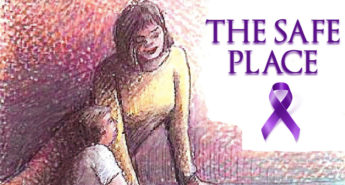 Living in a home with domestic abuse is tough on children – regardless of whether they are actually physically ‘abused’ or not. The stress of the constant conflict or cycles of conflict – yelling, screaming, chaos, witnessing violence, comforting an injured parent, tiptoeing around an abusive adult, living in and cleaning up messes left by abusive episodes, being asked to ‘cover’ for abuse, living in constant fear for their lives and the lives of a loved one, taking care of themselves or younger siblings, taking care of an adult that is abusing a substance, having disrupted sleep due to violence, etc. – wears down on a child physically, mentally and emotionally. Arkansas was ranked #1 in 2018 for having the highest rate of childhood trauma in the United States. Domestic violence is one the leading causes for this trauma, along with parental drug addiction, poverty, neglect, and physical, emotional, and sexual abuse.
Living in a home with domestic abuse is tough on children – regardless of whether they are actually physically ‘abused’ or not. The stress of the constant conflict or cycles of conflict – yelling, screaming, chaos, witnessing violence, comforting an injured parent, tiptoeing around an abusive adult, living in and cleaning up messes left by abusive episodes, being asked to ‘cover’ for abuse, living in constant fear for their lives and the lives of a loved one, taking care of themselves or younger siblings, taking care of an adult that is abusing a substance, having disrupted sleep due to violence, etc. – wears down on a child physically, mentally and emotionally. Arkansas was ranked #1 in 2018 for having the highest rate of childhood trauma in the United States. Domestic violence is one the leading causes for this trauma, along with parental drug addiction, poverty, neglect, and physical, emotional, and sexual abuse.
What are some of the signs that a child may be living with toxic stress:
* Ongoing headaches or stomachaches.
* Nightmares.
* Inability to focus or concentrate.
* Changes in appetite and weight.
* Increased anxiety and fear.
* Impulsive behavior.
* Dropping grades.
* Increased outburst and tantrums.
* Increased aggressive behaviors.
* Being defiant.
* Bed-wetting.
* Toileting accidents.
* Increased fidgeting.
* Withdrawing.
Toxic stress and trauma during childhood can lead to many issues that follow them throughout their life, such as:
* Being in an abusive relationship.
* Becoming an abuser, themselves.
* Increased chance of abusing drugs or alcohol.
* Increased chance of attempting/committing suicide.
* Increased chance of becoming addicted to gambling.
* Developing learning and memory disorders.
* Increased chance of heart disease, high blood pressure, and diabetes.
* Increased chance of developing asthma.
* Increased chance of developing auto-immune diseases.
* Increased risk of developing cancer.
* Increased risk for depression.
* Shorter predicted life expectancy.
Breaking the cycle of domestic violence in your community and family is a powerful way to stop the effects of toxic stress in our children! Addressing drug addiction issues, mental health issues, and extreme poverty will help tremendously, as well! If you need help breaking the cycle of abuse and toxic stress in your family, call 1-888-554-2501 and talk to a domestic violence advocate. We are here to help, anytime, day or night.
https://med.fsu.edu/childStress/whatis
https://www.choosingtherapy.com/toxic-stress/
https://www.acesaware.org/wp-content/uploads/2019/12/2-What-is-Toxic-Stress-English.pdf
https://developingchild.harvard.edu/science/deep-dives/neglect/
https://www.ncbi.nlm.nih.gov/pmc/articles/PMC4928741/
https://katv.com/news/local/why-experts-say-arkansas-has-more-traumatized-kids-than-any-other-state




Leave a Reply